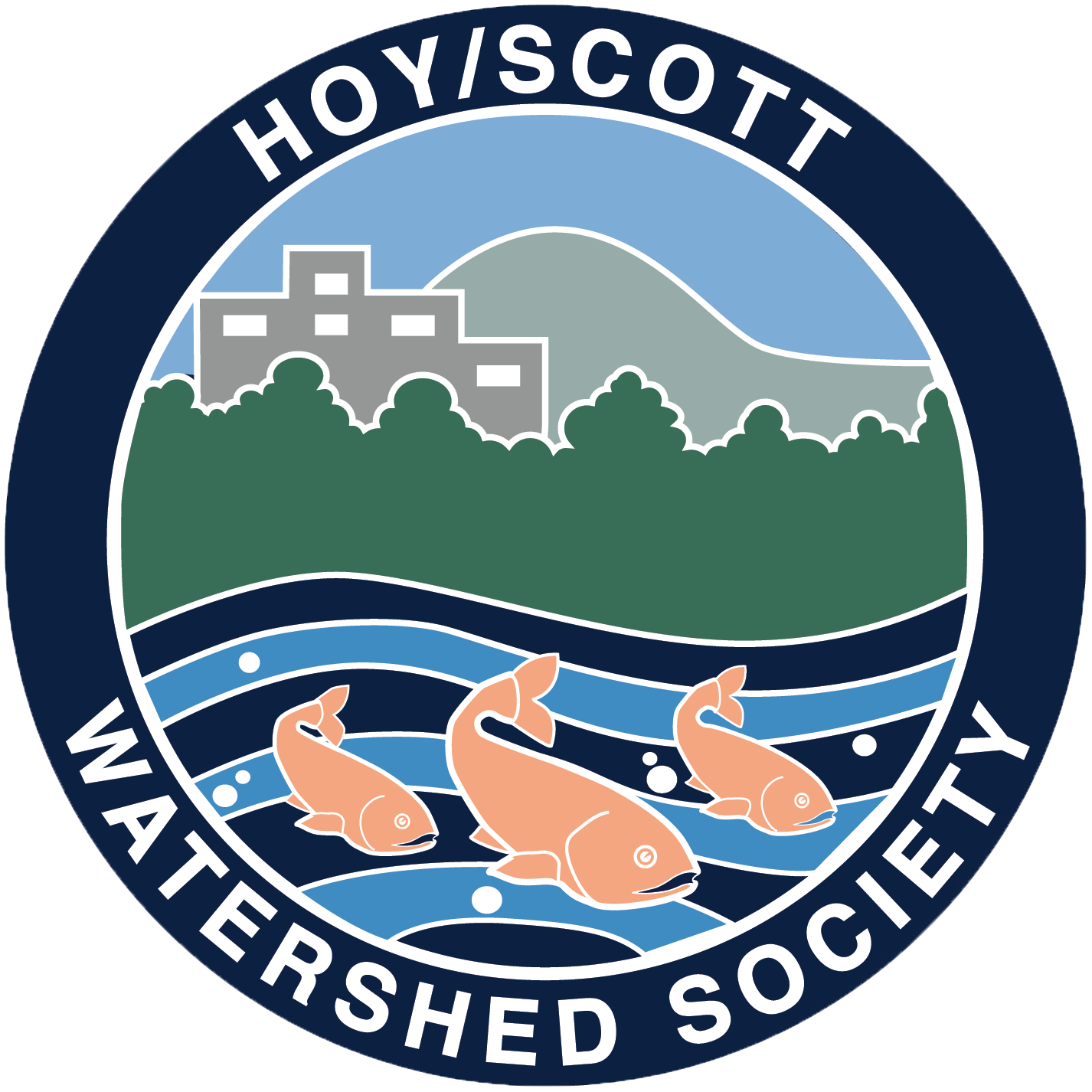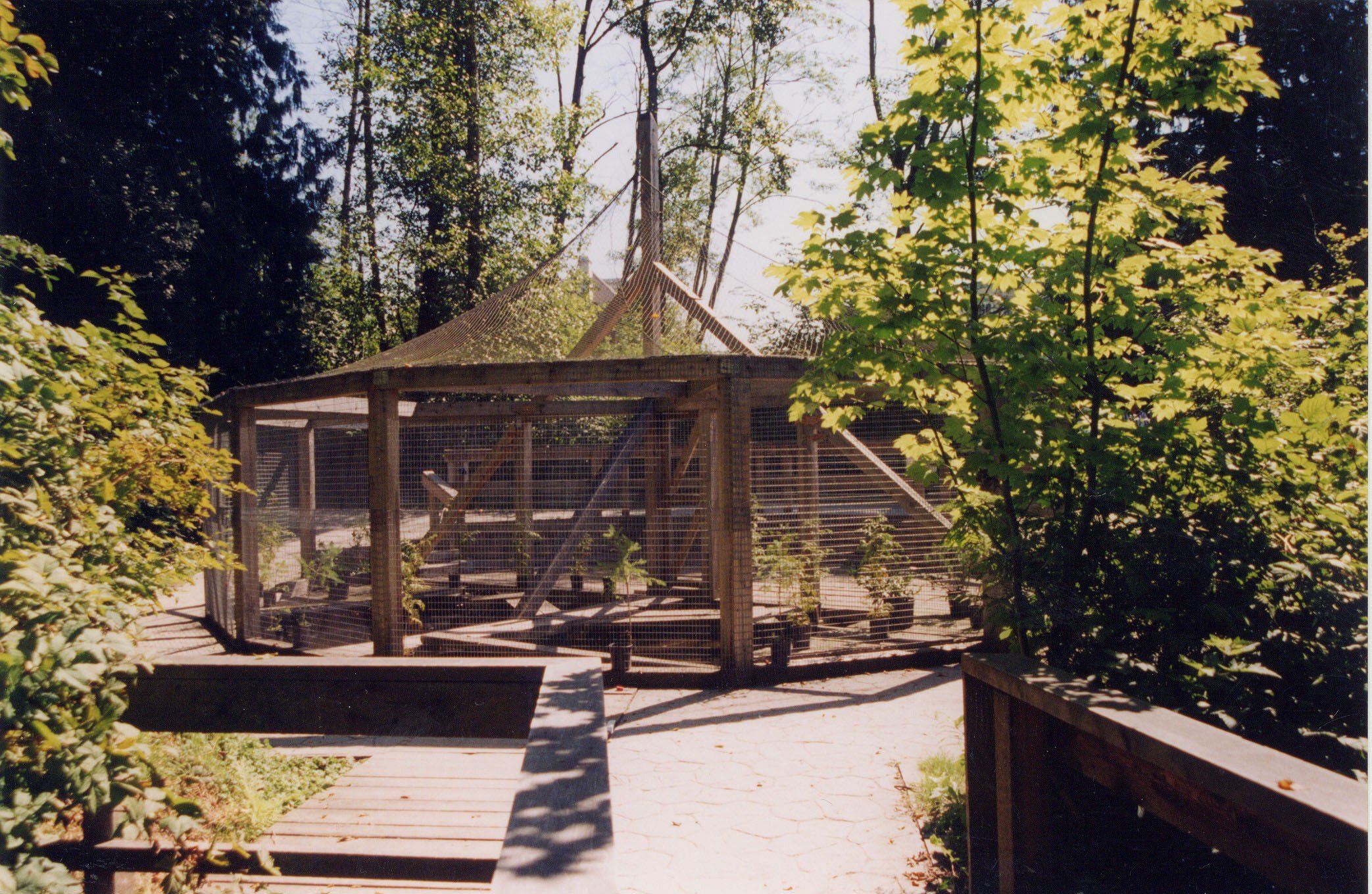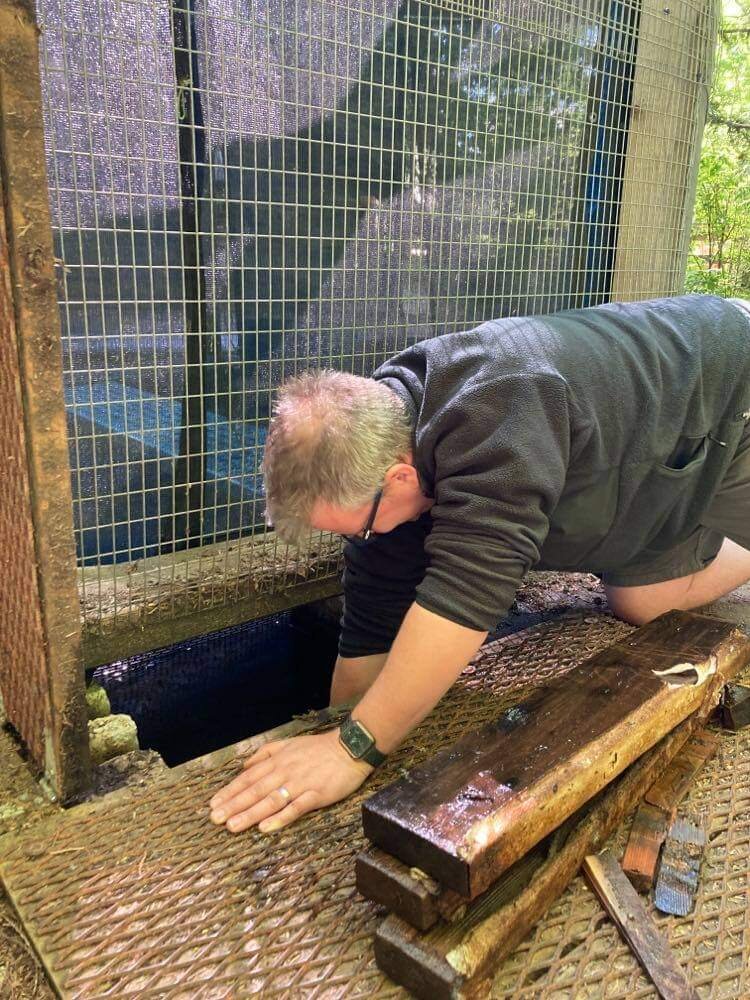Photo taken in June 2021 during refurbishments by the City of Coquitlam. (Photo: HSWS)
Thanks to the City of Coquitlam for work on refurbishing the historic rearing pond at Hoy Creek Hatchery. Structural beams were replaced. Read more in the Tri-City News.
The "Optimist Rearing Pond" was originally constructed in 1945 to hold trout on the old Brewer property, and was restored with help from the Coquitlam Optimists to be used to rear salmon. It is an enclosed and screened pond area that is stream-fed. Salmon fry are placed in the pond in May of each year and are raised there until they are released the following May at our 'Salmon Leave Home' event.
The crew from the City of Coquitlam during refurbishments. The decorative dragon fly came down until the new beams were put in. (Photo: HSWS)
The original trout rearing facility on the Frederick Brewer property is today's rearing pond at the Hoy Creek Hatchery. (Photo: HSWS Fonds)
The salmon in the rearing pond are fed daily, and society volunteers regularly check for weight and length. Water temperatures are also checked daily.
Each May after the salmon smolts are released in to Hoy Creek at our 'Salmon Leave Home' event, the rearing pond is then drained and cleaned. It's always a surprise to see what's living at the bottom! We usually find crayfish, lampreys, caddisfly nymphs and other invertebrates! They too are released into the creek.
A look at the rearing pond in the year 2000 (Photo: HSWS Fonds)








